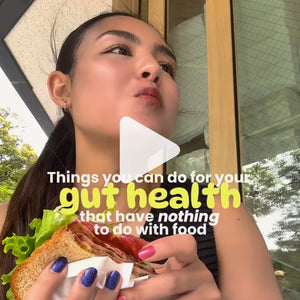If you have a broccoli intolerance or allergy you may experience uncomfortable, unpleasant or even painful symptoms after eating broccoli or food that contains broccoli. The symptoms can range from mild to severe, and in some extreme cases can cause breathing difficulties and anaphylaxis.
In this post, we’ll reveal everything you need to know about broccoli allergies and intolerances, including the symptoms and how you can find out for sure whether or not you have an allergy or intolerance.
What are the symptoms of a broccoli allergy?
If you have a broccoli allergy, you may experience one or more of the following symptoms whenever you eat it:
- Cold-like symptoms (coughing and sneezing)
- Breathing difficulties
- Nausea or vomiting
- Diarrhoea
- Skin rashes
- Stomach pain or cramps
- Dizziness
- A tingling mouth or swollen lips
In some rare cases, a severe allergy can lead to anaphylaxis.
What are the symptoms of broccoli intolerance?
If you have a broccoli intolerance or sensitivity, some symptoms are similar to that of an allergy. However, the symptoms of an intolerance are usually not as extreme and in most cases are concentrated in the digestive system. Broccoli intolerance symptoms include:
- Stomach pain or cramps
- Bloating
- Constipation
- Diarrhoea
- Headaches
What is food intolerance?
A food intolerance is when your body struggles to process or metabolise certain foods, which causes the unpleasant symptoms, usually around your stomach and digestive system. However, an allergy is your body interpreting food as a threat, which causes the symptoms as your body attempts to fight it. A food intolerance or an allergy can develop at any point in your life.
Both can also be difficult to live with, especially if you don’t know for sure whether or not you have one. This can make it difficult to manage, so it’s best to try and get a proper diagnosis.
What should I do if I think I have a Broccoli intolerance?
If you suspect you do have a broccoli allergy or intolerance, you should stop eating broccoli until you have confirmation. Not only are the symptoms unpleasant, but allergies can worsen over time.
For a quick, easy and accurate way to find out whether or not you have a broccoli intolerance, our selection of food intolerance tests are a convenient way for you to find out.
How do you test for a broccoli allergy or intolerance?
There are four main ways to find out whether you have a broccoli allergy or intolerance:
- An elimination diet, which involves you removing food that contains broccoli from your diet to monitor your symptoms.
- Start a food diary to track the food you eat and the symptoms you experience to help identify a pattern.
- Speak to your doctor and explain your symptoms, however, they’re likely to suggest an elimination diet or food diary.
- Take a food intolerance blood test at home to quickly discover whether or not you have an allergy or intolerance.
What foods should you avoid if you have a broccoli allergy or intolerance?
If you experience symptoms after eating broccoli, then you should avoid eating food or drink that contains broccoli. This may include:
- Soups
- Strew
- Vegetable juices
- Sauces
- Stir fry
- Broccoli cheese
If you’re not sure, make sure you read the label on any food packaging.
10 alternatives to broccoli
There are plenty of great alternatives to broccoli such as:
- Bamboo shoots
- Cabbage
- Celery
- Beans
- Lentils
- Lettuce
- Brussel Sprouts
- Cauliflower
- Peas
- Swede
Test to see if you have a broccoli intolerance
If you experience symptoms of an intolerance after eating broccoli, it’s recommended that you find out as soon as possible so you can manage it properly.
The fastest, most accurate and most convenient way to test for a food intolerance is with one of our food intolerance test. Order our body intolerance test today to find out in just one week and take back control of your health.
References
1. Vitamin D. NIH, Office of Dietary Supplements. URL. Accessed February 15, 2021.
2. Nair R, Maseeh A. Vitamin D: The “sunshine” vitamin. J Pharmacol Pharmacother. 2012;3(2):118-126.
3. Vitamin D2 vs. D3: Which Should I Take for Bone Health?. Cleveland Clinic. URL. Accessed February 15, 2021.
4. Jetty V, Glueck CJ, Wang P, et al. Safety of 50,000-100,000 Units of Vitamin D3/Week in Vitamin D-Deficient, Hypercholesterolemic Patients with Reversible Statin Intolerance. N Am J Med Sci. 2016;8(3):156-162.
5. On call: Vitamin D2 or D3? Harvard Medical School. URL. Accessed February 15, 2021












